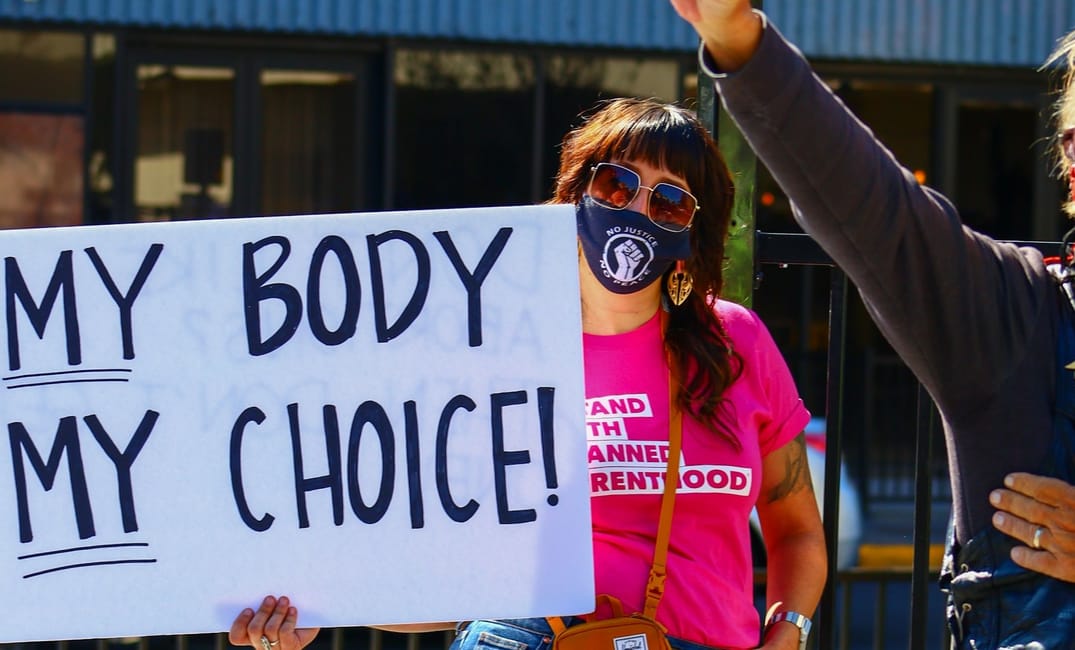✏️ Catherine Coggan
It is a noble human aspiration that people will unite in the face of adversity. Tales from the Blitz of British solidarity when under attack are often used as a testament to the human spirit. Yet, so far the impact of the COVID-19 pandemic seems to have only worsened partisanship in the United States. Partisanship refers to strong allegiances to the ideas and systems of a specific party. This is usually the Democrats or the Republicans in the US as they have a two-party system.
Regarding COVID-19, 78% of Democrats believe that the outbreak is a major threat to the health of the U.S. in comparison to 52% of Republicans.
Why is it that a virus divides us further? Surely, a common enemy should motivate people to put aside their differences? Perhaps it is because, unlike in war, this enemy has no face. It is invisible, in our air and our homes.
Many Americans will be more affected by the lockdown measures than by the virus, which shifts focus away from the virus itself to how politicians are responding to it. The growing partisan hostility is translating into a lack of faith in experts and the government. Two-thirds of Americans believe that the official U.S. death toll is inaccurate. 63% of Democrats believe it is an undercount, whereas 40% of Republicans believe it to be an overcount.
Politics may not be the sole reason behind this disparity. Democrats tend to live in urban areas, which so far have been hit worse by the pandemic than rural ones. Likewise, men and women have responded in different ways to the pandemic. Women, who are generally more likely to vote Democrat, are more supportive of the lockdown measures than their male counterparts. However, even when accounting for geography, residence and demography, the profound impact of partisanship still remains.
There are many reasons why Republicans and Democrats may view the pandemic differently. The first of which is loyalty to the man in charge. Throughout the pandemic, Donald Trump has downplayed the seriousness of the virus and advocated for the country to be reopened. Republicans have continued to support the President throughout the pandemic, 83% of Republicans and leaning Republican voters have rated Trump’s response to the outbreak as either ‘excellent’ or ‘good’ in comparison to 18% of Democrats.
Unfortunately, in this regard, things may only get worse. Donald Trump, like most leaders, had an increase in his approval ratings in the early stages of the pandemic. This is most likely due to a phenomenon known as the ‘rally round the flag effect’ in which people tend to show greater support for their leaders in times of crisis. This was notably seen under George W. Bush, whose approval ratings shot up to 92% after 9/11.
However, as the pandemic continues it is likely that divisions will be exacerbated as people get used to the lockdown measures. The election is undoubtedly contributing to the political nature of this pandemic. Four of the five presidents that failed to secure a second term were running at a time of very poor economic growth, something that both Trump and his staff will be keenly aware of. The longer this pandemic lasts and the worse the economic consequences are, the harder it will be for him to get re-elected.
Finally, the pandemic presents a contrast in values between Democrats and Republicans. Democrats have a greater focus on protecting the lives of the weak and vulnerable, a concept referred to as ‘safetyism’ by sociologist, W. Bradford Wilcox. This is reflected in their greater willingness to adopt the lockdown measures. Conversely, many Republicans seek to preserve the traditional American way of life, built upon freedom and access to the free market.
However, we should not despair. Congress passed a $2trn relief bill, proving that politicians are capable of reaching across the aisle to get legislation passed quickly. While there is a large split between Republicans and Democrats on how the president is handling the virus, the gap in the views on preventative measures is far smaller. Crucially, although Republicans are less likely than Democrats to support the public health measures imposed because of Coronavirus, they are just as likely to obey them. Perhaps through our actions, if not our words, there is room for us to work together.
Thanks for reading our article! We know young people’s opinions matter and really appreciate everyone who reads us.
Give us a follow on Instagram, Twitter and Facebook to stay up to date with what young people think.

